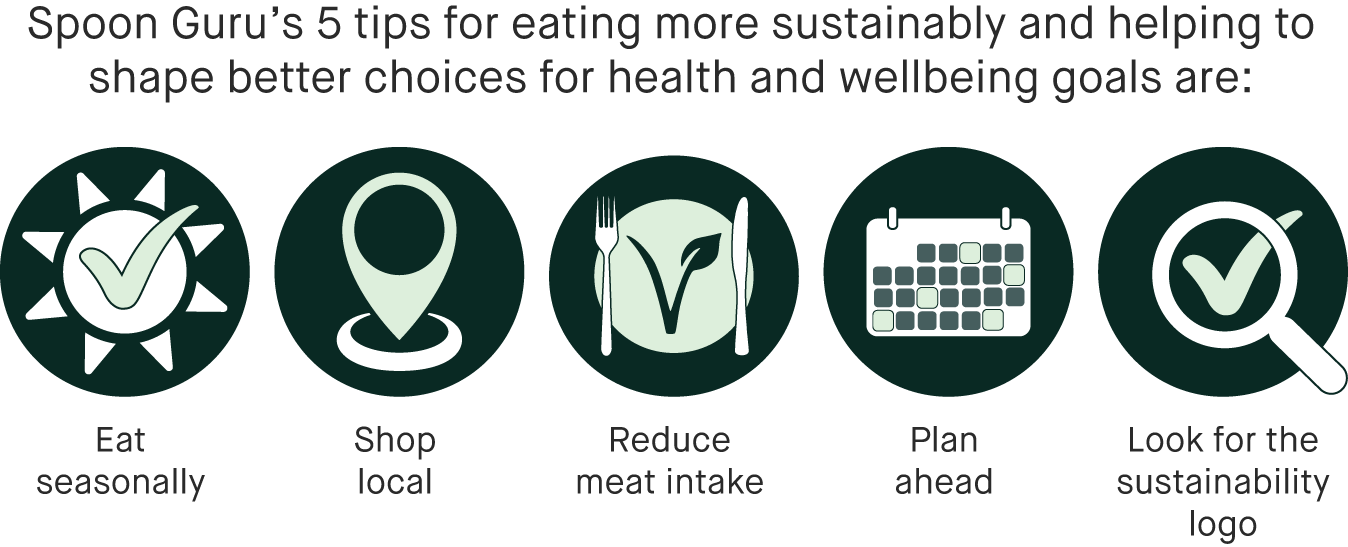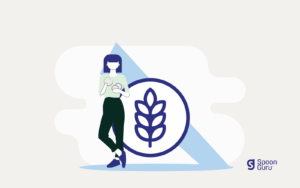We’ve been reflecting on the annual Healthy Eating Week campaign which the British Nutrition Foundation runs every June. This year their themes included 3 topics that are particularly close to our hearts – Focus on Fibre, 5-A-Day, and Reducing Food Waste.
We covered the reasons why fibre and eating 5-A-Day matters in our blog series from last year. You can read up on them here:
In this blog we’re going to talk about why & how retailers can help their customers to make healthier choices as they shop.
Why encouraging an increase in fibre consumption matters
The focus on fibre campaign ignited a flame inside those of us at Spoon Guru who are keen to try and increase the visibility of products that contain a noticeable amount of fibre.
In May this year, the EIT Consumer Observatory released its 2023 EU-based Trust Report. It revealed that fewer consumers are making healthy and sustainable food choices, and there’s been a decline in consumer trust in the food sector as a whole.
This presents an opportunity for retailers to help improve their relationship with their customers through the promotion of healthier food products.
As a retailer you can incentivise your shoppers to consume more fibre by:
- Using endcap displays to promote high fibre products
- Running a “Make every week a Healthy Eating Week” style marketing campaign
- Flagging products which are a source-of fibre or have a high fibre content by using icons both on the shelf-edge and online
- Using gamification and rewards to help encourage an increase in fibre consumption
- Creating a ‘Source of Fibre’ dietary zone online
Spoon Guru’s “High Fibre” and “Source of Fibre” TAGs can be used to power all of these initiatives. Our innovative products are designed to be used both as a consumer-facing and back-end tool to aid retailers on their mission to help shoppers quickly and easily find the best food and drink products for their needs.
What counts a 1 of 5 a day? Spoon Guru has just the TAG for you
As mentioned above, fibre can be consumed in many different formats. One of those being fruits and vegetables. These provide a plethora of compounds, not only fibre, but also vitamins, minerals and polyphenols (molecules produced by plants as defensive mechanisms, such as antifungals, however, in humans they deliver antioxidant properties).
According to the World Health Organisation (WHO), 70-80% people are yet to achieve the habit of consuming their 5-A-Day. Food trade policies must change to reduce the FMCGs incentives to continue or increase production of processed foods, but that is another topic altogether.
It’s more simple than it seems; to fathom how to explain what a portion is and an example of a day where you consume your 5-A-Day, check out the blog linked above. It’s clear by the lack of adherence to the UK National Guideline that consumers are not accustomed to including a variety of fruits and vegetables into their diets. Hence why, Spoon Guru has developed a “1 of 5 a day” TAG to facilitate the search of products that could count as one of the 5-A-Day, thus driving healthier shopper habits.
Wasted food, wasted opportunity. How can we give customers what they’re asking for?
On the one hand, household food waste is colossal. According to the UNEP Food Waste Index 2024: “Around 1.05 billion tonnes of food waste were generated in 2022 – 60% of which came from households, 28% from food services and 12% from retail”.
On the other hand, the number of customers looking to shop more sustainably is on the increase. According to the 2024 Sustainability, EV, and Convenience Retail Survey Report, 80% consumers are willing to pay more for sustainable products (versus 64% in 2021). As published by the EIT Consumer Observatory in 2023: “75% of consumers look for product information on packaging”, and want to buy from environmentally friendly companies but don’t know how to identify them.
Reducing the amount of food that we waste is a key part of making our diets more sustainable.

According to a 2021 Spoon Guru survey: “Consumers are urging retailers for more help on how to choose plant based foods”.
Thus, how can retailers help customers achieve this?
- Facilitating their customer’s search with Sustainability TAGs
- Helping them to plan ahead
- Educating them on what products can be frozen
- Developing a sustainability-focused loyalty program
Did you know…About 3 million glasses of milk are poured down household sinks in the UK every day! 77% of consumers indicate an interest in pairing sustainable products and services with loyalty, and on average, loyal returning customers spend 67% more than first-time customers. |
Due to the increased demand from customers for Sustainability TAGs, Spoon Guru partnered with sustainability experts, HowGood. HowGood have the world’s largest product sustainability database, with data and analysis for more than 33,000 ingredients, chemicals, and materials, sourced worldwide. Our joint collaboration allows grocery retailers’ products to be categorised into a plethora of lifestyle, nutritional, and environmental TAGs.
Today customers are spoilt for choice to the point where it can seem like a minefield out there. Retailers can aid with that by allowing customers to curate their searches through the use of sustainability TAGs powered by Spoon Guru and HowGood. Keeping in mind that sustainable diets are defined as eating well for the planet as well as for your health.
If you’re serious about helping your customers to create and maintain healthier and more sustainable shopping and eating habits, contact us today and find out how our award winning combination of expertise and technology can help you achieve your health and sustainability goals.


